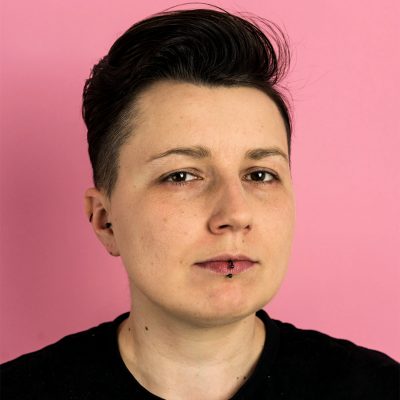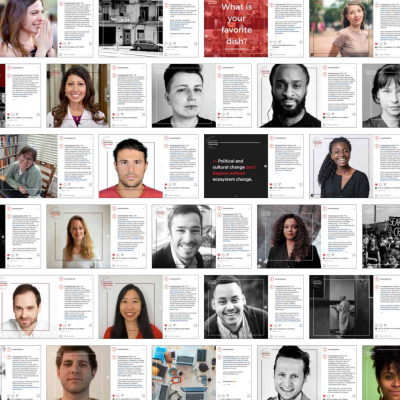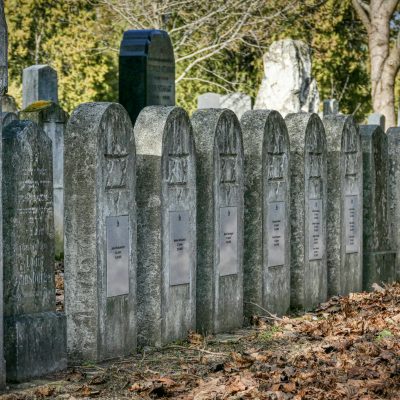Article
Landecker Democracy Fellow Lena Bielska is a certified WenDo trainer who works as a human rights educator with a focus on consent, anti-discrimination, and empowerment.
The last five years of political and social changes in Poland have shown a significant increase in the oppression of women and minority groups. In political and media discourse, there has been a visible increase in hate speech against the LGBTQ+ communities, refugees, and women. There are profound crises in the realms of human rights, democracy, and social justice. Perhaps due to this, there has also been an increase in activity from humans rights activists. People in activism often experience minority stress, oppression, violence, and discrimination themselves.
In the last few years of Lena’s activist work, she noticed that there was a lack of spaces in Poland dedicated to the support and development of activists and people experiencing some form of oppression. This often led to burnout in relation to activists, and the deepening of the crisis for discriminated groups.
She noticed that there was a lack of spaces in Poland dedicated to the support and development of activists and people experiencing some form of oppression.
This lack of support led Lena to work on the Activist Support Center in Wroclaw. It is important for her to strengthen activist skills and to identify potential among young people. It is important to strengthen the activist environment, to encourage people to broaden their sense of agency, and to change the difficult situations in Poland. Lena would like to reach a large group of people and help to begin their activist journey by aiding them in acting in local groups, providing educational support in writing projects, and connecting them with other people and organizations.
Over the next year, Lena will develop the Activist Support Center through three activities that she has already been working on in the past two years.
Her work and activism have helped previously silenced voices, which is why she wants to continue sharing her energy and strength with those who may feel weak due to oppression.
- Mentoring young activists in women’s and LGBTQ+ rights in Wroclaw and smaller towns in various parts of Poland. This strengthens a new generation of activists by giving substantive support and aid in building teams, counteracting activist burnout, solving conflicts, project work, and therapeutic support.
- Developing and popularizing support groups. This medium is not currently popular in Poland, but it is an effective way to build group strength and empowerment in oppressed communities, to share experiences, to self-organize, and to work with trauma or minority stress.
- Hosting Dirty Talk Night events. These events strengthen stage skills and increase the visibility and ability of the experiences of marginalized people in public debate. The entire event is a coherent process run by Lena. It serves to nurture social relationships and connections. Lena believes that these are some of the most important goals for the near future.
Lena believes that this would be a great starting point for a difficult but incredible new chapter of Polish activism and the human rights movement. She believes in social relations and that change is possible. Her work and activism have helped previously silenced voices, which is why she wants to continue sharing her energy and strength with those who may feel weak due to oppression. She wants to extend a hand to young activists and support those who feel burnt out. Lena aims to stand by those against whom Poland has turned its back.
Further Resources
-
Lena Bielska speaker at the 2021 "Miasto i Kultura" Conference
On October 21, Landecker Fellow Lena Bielska was invited to the City and Culture conference to discuss issues related to the area of activist burnout.
-
RAISIN Placemaking & Community Live Conversations with Asha Iman Veal
As part of her RAISIN exhibition, Asha Iman Veal is organizing Placemaking & Community Live Conversations. The event on October 8th features several Landecker Democracy Fellows.
-
Landecker Fellow Lena Bielska Organizes Work Competence Training
Landecker Fellow Lena Bielska invites Poland-based individuals for the Work Competence Training.
-
Landecker Fellow Lena Bielska's WenDo workshops are a success
Landecker Fellow Lena Bielska's WenDo workshops are truly unique.
-
Online Support Group for Women and Trans Activists // Samopomocowa Grupa Wsparcia
Landecker Democracy Fellow Lena Bielska is founding the first online self-help support group for women and trans activists in Warsaw. This group will work in cooperation with the Preludium Foundation from Poznań.
-
Halo.Radio Appearance
Landecker Fellow Lena Bielska spoke live on Halo.Radio about sexual education and combatting violence. Lena is an anti-bullying and anti-discrimination coach at Fundacja HerStory (HerStory Foundation).
-
Webinar against activist burnout
Landecker Fellow Lena Bielska was in webinar that aimed to counter activist burnout. Lena discussed mental and physical health, and the influence of politics on the well-beings of activists.




